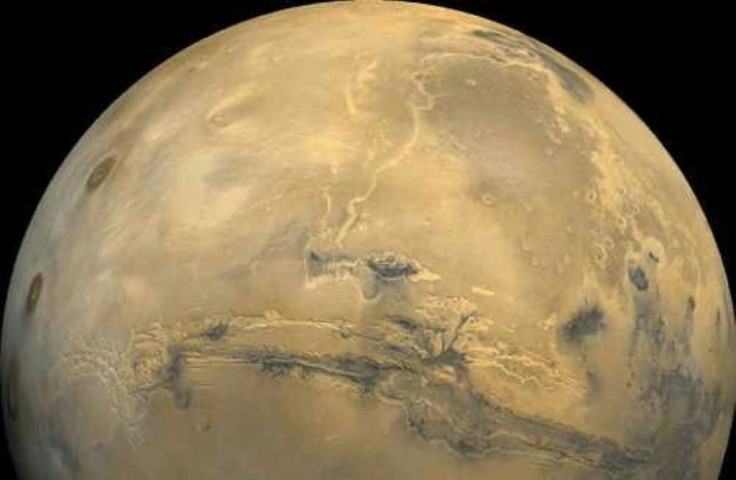It's Hard To Search For Clues Of Ancient Life On Mars. Here's Why
KEY POINTS
- Martian soil could be holding evidence of ancient life on Mars
- NASA's Mars Perseverance rover will specifically looking for signs of ancient life
- The rover will collect soil samples and keep it for another spacecraft to collect and return to Earth
A new study suggests that it may be difficult to find signs of life on Mars because the fluids that once flowed on the planet may have already destroyed evidence of it.
Three spacecrafts are currently on a journey to Mars, and one of them, NASA's Mars Perseverance rover, has the special job of specifically looking for signs of ancient life. As part of its mission, the rover will collect Martian soil samples and keep it for another spacecraft to collect and return to Earth in the 2030s.
This is because the clay could be harboring and protecting organic material against extreme environmental conditions, making them excellent reservoirs of possible organic compounds.
But in the new study, a team of researchers found this protective capability of clay may be limited under Martian conditions because of the acidic fluids that are known to have once flowed on its surface.
For their study, published Tuesday in the journal Nature Scientific Reports, the researchers conducted a simulation of the Martian surface and tried to see whether the clay that had previously been exposed to acidic or alkaline fluids will still protect an amino acid called glycine.
Typically, clay has layers wherein the organic matter can be stored and preserved. However, the results of the experiment revealed that exposure to the Mars-like ultraviolet radiation removed the interlayer space in the treated clay. The results were particularly more evident in the acid-treated clay, which formed a gel-like silica and essentially destroyed the glycine.
Since this fluid had once flowed on the surface of Mars, it's possible the Martian soil's exposure to it may have significantly affected the clay's capability to preserve ancient organic matter.
"When clays are exposed to acidic fluids, the layers collapse and the organic matter can't be preserved. They are destroyed," corresponding author Alberto G. Fairén of Cornell University said in the university news release. "Our results in this paper explain why searching for organic compounds on Mars is so sorely difficult."
What this could mean for the Perseverance Rover's mission as well as the European Space Agency's 2022 Rosalind mission to also collect Martian soil samples is unknown. Perhaps the only thing to do is to wait and see what these major missions will end up finding, or not finding, in the Red Planet.

© Copyright IBTimes 2024. All rights reserved.






















